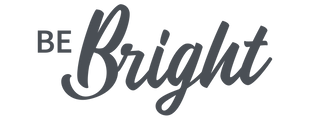What is collagen?
Collagen is a fibrous protein that is already present in our bodies. Our bodies naturally produce it and it is the single most abundant protein we have, making it essential to our overall wellbeing. Collagen is accurately referred to as the ‘glue’ in the human body - it holds everything together and provides strength, structure, lining and cushioning throughout our body.


Why is it important?
A steady production of collagen is central to providing strength and structure for firm skin, healthy hair and strong nails. Its regenerative properties support and enhance the health of our bones, joints, cartlidge, tendons and ligaments. Its reparative properties support gut and vascular health. As we age, our body’s natural production of collagen slows down, bringing with it the unwanted effects of aging. As our natural supply of collagen tapers, the existing collagen structures become weak and disorganised. Introducing and maintaining hydrolysed collagen in your daily diet at any age is enormously beneficial, and supplementing with hydrolysed collagen from as early as your twenties is an excellent preventative measure in helping to maintain your collagen structures before they have a chance to start weakening and breaking
down.
The Benefits
Supplementing with Be Bright’s pure hydrolysed bovine collagen is known to:.
Increase skin collagen density and skin hydration
Restore skin elasticity
Smooth out fine lines and wrinkles
Support and repair the digestive tract
Strengthen hair, nails and teeth
Promote new hair growth
Reduce joint inflammation associated with aging
Provide pain relief for arthritic patients
Assist with accelerating injury recovery time
Assist in healing acne and scars
The Science
Collagen is a hard, insoluble, and fibrous protein that makes up one-third of the protein in the human body. The collagen molecules are packed together to form a scaffolding of long, thin fibrils that act as the body’s support structure, and anchors cells to each other. They give the skin strength and elasticity. There are at least 16 types of collagen, but between 80 – 90% belong to types 1, 2, and 3. The different types have different structures and functions within the body. The collagens found in the human body are strong and flexible and Type 1 collagen fibrils are particularly capable of being stretched. Gram-for-gram, they are said to be stronger than steel.
Hydrolysed collagen is rich in the amino acids proline, hydroxyproline, glycine, glutamic acid and alanine. These amino acids are what the body uses to build new collagen fibres and repair and restore weakened collagen structures. The consistent daily intake of hydrolysed collagen feeds your body with these amino acids enabling this restorative process to occur
These statements have not been evaluated by the Food and Drug Administration. This product is not intended to diagnose, treat, cure or prevent any disease.

